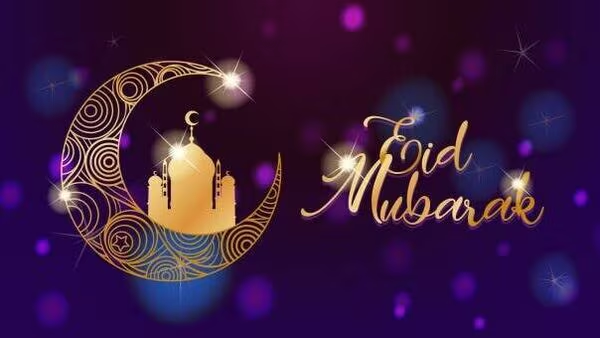Eid-e-Milad-un-Nabi 2024 in India: Date, Historyand Celebratory Wishes

Eid-e-Milad-un-Nabi, also referred to as Mawlid or simply Eid-e-Milad, is a significant Islamic event that honours the birth anniversary of Prophet Muhammad.
Eid-e-Milad-un-Nabi, also referred to as Mawlid or simply Eid-e-Milad, is a significant Islamic event that honours the birth anniversary of Prophet Muhammad. This occasion offers Muslims worldwide an opportunity to reflect on the Prophet’s teachings and celebrate his contributions to humanity. Notably, the day also commemorates his passing, as Prophet Muhammad is believed to have died on the same date.
Eid-e-Milad-un-Nabi 2024: Date and Timing in India
Eid-e-Milad-un-Nabi is celebrated on the 12th day of Rabi’ al-Awwal, the third month in the Islamic lunar calendar. In 2024, this special day will be observed in India starting from the evening of Sunday, September 15th, and will continue until the evening of Monday, September 16th.
Eid-e-Milad-un-Nabi Wishes and Greetings
Here are some heartfelt wishes and greetings to share with loved ones on this sacred day:
• Wishing you a peaceful and blessed Eid-e-Milad-un-Nabi filled with joy, love, and spiritual blessings.
• May this Eid-e-Milad deepen your faith and bring compassion, kindness, and peace into your life.
• Eid Mubarak! May the teachings of Prophet Muhammad guide you towards love, happiness, and prosperity.
• May the light of Eid-e-Milad bring you happiness, success, and abundance.
• On this holy occasion, may your prayers be answered and your heart be filled with peace and tranquillity.
• Sending warm wishes on Eid-e-Milad. May the wisdom and kindness of the Prophet inspire you to lead a life of righteousness.
• Eid Mubarak! May this special day inspire you to spread love, generosity, and harmony.
• As we honourthe birth of Prophet Muhammad, may your life be filled with blessings and joy.
• May this Eid-e-Milad bring you closer to your faith and fill your days with grace and happiness.
• Wishing you and your family a blessed Eid-e-Milad-un-Nabi, filled with peace, prosperity, and joy.
History and Significance of Eid-e-Milad-un-Nabi
The third month of the Islamic calendar, Rabi’ al-Awwal, is particularly significant for Muslims as it marks the birth of Prophet Muhammad in 570 CE in Mecca. The 12th of Rabi’ al-Awwal is also remembered as the day of his passing, making the day a poignant reminder of his life and legacy. Eid-e-Milad-un-Nabi serves as an occasion for Muslims to reflect on the Prophet’s teachings, which emphasize values like compassion, justice, and kindness.
The observance of Eid-e-Milad carries profound spiritual meaning, as it is a time to remember and recommit to following the Prophet’s principles of mercy, faith, and justice. It is a day when homes, mosques, and streets are adorned with vibrant decorations, while special prayers and charitable acts become central to the celebration.
How Eid-e-Milad-un-Nabi is Celebrated
1. Religious Observances
The day usually begins with special prayers and the recitation of verses from the Quran. In many communities, these prayer sessions continue throughout the day and into the evening.
2. Festive Decorations and Parades
During Eid-e-Milad, streets, homes, and mosques are illuminated with colourful lights, while banners featuring Islamic messages are displayed. Public processions and parades are also organized, drawing large gatherings of people.
3. Acts of Charity
Charitable deeds and donations are strongly encouraged on this day, reflecting the Prophet’s advocacy for generosity and care for those in need.
4. Cultural Celebrations
Many devotees visit religious sites like Haji Ali Dargah, Jama Masjid, Nizamuddin Aulia, and Ajmer Sharif to offer prayers and seek blessings. Cultural expressions, such as poetry, writings, and artwork inspired by the Prophet’s life, are shared among the community.
5. Intellectual Gatherings
Religious scholars and historians often host discussions and lectures that focus on the life of Prophet Muhammad and Islamic history. These gatherings provide a deeper understanding of the Prophet’s contributions to society and his lasting legacy.
In conclusion, Eid-e-Milad-un-Nabi is a day of reflection, celebration, and community bonding, encouraging Muslims to embody the values that Prophet Muhammad taught throughout his life.








